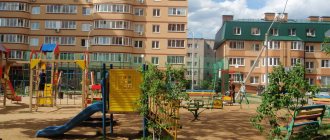Russian laws protect not only the rights and freedoms of citizens, but also health of every person.
Health refers to the normal physical and moral state of the human body.
When damage to health is caused, even in a mild form, a citizen has the right to defend his right and receive compensation for moral damage from the culprit .
How to do this will be discussed later in the article.
Moral damage in cases of mild harm to health: what does it consist of?
In legislation you can find such a legal construction as “moral damage for causing harm to health . What do you mean by it?
Moral damage, based on various judicial and other interpretations, is the infliction of physical and moral suffering on a person , as a result of which his health deteriorates.
In other words, his life becomes uncomfortable, not the same as it was before. And all because illegal actions or inactions were committed by the guilty person in relation to such a victim.
When a citizen becomes a victim of a crime or administrative offense, this is accompanied by harm to his health, which can have 3 degrees:
- severe (for example, severe injuries or damage to internal organs, termination of pregnancy, etc., hence long-term or complete permanent disability);
- moderate severity (for example, concussion, fractures (nose, ribs, jaw), dislocations, accompanied by temporary permanent disability for more than 3 weeks);
- light (this is loss of ability to work for no more than 3 weeks, minor injuries and bruises).
In case of severe or moderate damage, moral damages are not difficult to prove , since the victim receives serious injuries and injuries. But with a mild degree it is more difficult to do , but it is still possible.
Note! The extent of damage can only be determined by a forensic expert during an examination.
What is moral hazard?
As a rule, moral damage in the case under consideration consists of:
- excitement, fear and anxiety due to the inability to work for some time;
- irritability;
- depressed mood;
- sleep disturbance;
- the need to redistribute the family budget in connection with the expenditure of funds on treatment and, thereby, depriving a family member or the victim of something, etc.
Can you get compensation for damage to your well-being?
It is worth repeating that if a mild degree of harm to health is caused, it is still possible to recover monetary compensation for moral damage .
Indeed, in accordance with the principles of law, any harm must be compensated if it is proven. This applies to both property and non-property damage (in our case, this is human health). The degree of harm does not affect the victim’s ability to recover moral compensation from the guilty person.
Important! According to Art. 151 of the Civil Code of the Russian Federation, moral or physical suffering resulting from actions that violate the personal rights of a citizen are recognized as moral harm.
The category of moral damage and its recovery can be found in a number of articles of the Civil Code of the Russian Federation.
- Article 151 – compensation for moral damage. It states that when determining the amount of compensation, the court should take into account both the guilt of the offender and the personality characteristics of the victim.
- Paragraph 4 with the same title of Chapter 59 “Liabilities due to harm”.
Compensation for moral damage.
Advice: explanations of judicial practice can be used as justification and to strengthen your legal position in a statement of claim.
In addition, a fairly large array of useful information of a recommendatory nature is contained in the Resolution of the Plenum of the Armed Forces of the Russian Federation dated December 20, 1994. No. 10. Courts are guided by this act when considering cases of compensation for moral damage.
Liabilities resulting from harm to the life or health of a citizen.
Compensation for harm caused to the life or health of a citizen
Liabilities resulting from harm to the life or health of a citizen.
§ 2. Compensation for harm caused to the life or health of a citizen
By Resolution of the Constitutional Court of the Russian Federation dated October 20, 2010 N 18-P, the provisions of paragraph 1 and paragraphs of the first and second paragraph 2 of Article 18 of the Federal Law “On the Status of Military Personnel” in conjunction with Article 1084 of the Civil Code of the Russian Federation were recognized as not contradicting the Constitution of the Russian Federation.
Article 1084 is subject to application in accordance with the constitutional and legal meaning identified in the Resolution of the Constitutional Court of the Russian Federation dated July 15, 2009 N 13-P.
(“Civil Code of the Russian Federation (Part Two)” dated January 26, 1996 N 14-FZ (adopted by the State Duma of the Federal Assembly of the Russian Federation on December 22, 1995))
Article 1084. Compensation for harm caused to the life or health of a citizen during the performance of contractual or other obligations
Harm caused to the life or health of a citizen during the performance of contractual obligations, as well as during the performance of military service, police service and other relevant duties, is compensated according to the rules provided for in this chapter, unless a higher amount of liability is provided for by law or contract.
Article 1085 also applies to cases where harm to the life and health of a citizen occurred before March 1, 1996, but not earlier than March 1, 1993, and the harm caused remained uncompensated (Federal Law of January 26, 1996 N 15-FZ).
(Article 1084, “Civil Code of the Russian Federation (Part Two)” dated January 26, 1996 N 14-FZ (adopted by the State Duma of the Federal Assembly of the Russian Federation on December 22, 1995))
Article 1085. Scope and nature of compensation for damage caused by damage to health
- If a citizen is injured or otherwise damaged his health, the victim's lost earnings (income) that he had or could definitely have, as well as additional expenses incurred due to damage to health, including the costs of treatment, additional food, purchase of medicines, prosthetics, are subject to compensation. , outside care, sanatorium treatment, purchase of special vehicles, preparation for another profession, if it is established that the victim needs these types of help and care and is not entitled to receive them free of charge.
- When determining lost earnings (income), the disability pension assigned to the victim in connection with injury or other damage to health, as well as other pensions, benefits and other similar payments assigned both before and after the injury to health, are not taken into account and are not entail a reduction in the amount of compensation for harm (they are not counted towards compensation for harm). Earnings (income) received by the victim after damage to health are also not included in compensation for harm.
- The scope and amount of compensation due to the victim in accordance with this article may be increased by law or agreement.
Article 1086 also applies to cases where harm to the life and health of a citizen occurred before March 1, 1996, but not earlier than March 1, 1993, and the harm caused remained uncompensated (Federal Law of January 26, 1996 N 15-FZ).
(Article 1085, “Civil Code of the Russian Federation (Part Two)” dated January 26, 1996 N 14-FZ (adopted by the State Duma of the Federal Assembly of the Russian Federation on December 22, 1995))
Article 1086. Determination of earnings (income) lost as a result of damage to health
- The amount of earnings (income) lost by the victim to be compensated is determined as a percentage of his average monthly earnings (income) before injury or other damage to health or until he lost his ability to work, corresponding to the degree of loss of professional ability by the victim, and in the absence of professional ability to work - the degree of loss of general ability to work.
- The lost earnings (income) of the victim includes all types of payment for his work under employment and civil contracts, both at the place of his main job and part-time work, subject to income tax. One-time payments are not taken into account, in particular compensation for unused vacation and severance pay upon dismissal. During the period of temporary disability or maternity leave, the benefits paid are taken into account. Income from business activities, as well as royalties, are included in lost earnings, while income from business activities is included on the basis of data from the tax office. All types of earnings (income) are taken into account in amounts accrued before taxes are withheld.
- The average monthly earnings (income) of the victim is calculated by dividing the total amount of his earnings (income) for the twelve months of work preceding the injury by twelve. In the case where the victim had been working for less than twelve months at the time of the injury, the average monthly earnings (income) is calculated by dividing the total amount of earnings (income) for the number of months actually worked prior to the injury by the number of these months. Months not fully worked by the victim are, at his request, replaced by previous fully worked months or excluded from the calculation if it is impossible to replace them.
- In the case where the victim was not working at the time of the injury, at his request, his earnings before dismissal or the usual amount of remuneration for an employee of his qualifications in the given area are taken into account, but not less than the minimum subsistence level established in accordance with the law for the working population as a whole in the Russian Federation. (as amended by Federal Law dated November 26, 2002 N 152-FZ)
- If the victim’s earnings (income) occurred before the injury or other damage to his health, lasting changes occurred that improved his financial situation (the salary for his position was increased, he was transferred to a higher-paying job, he started working after graduating from an educational institution with full-time education and in other cases, when the sustainability of the change or the possibility of changing the victim’s wages has been proven), when determining his average monthly earnings (income), only the earnings (income) that he received or should have received after the corresponding change are taken into account.
Article 1087 also applies to cases where harm to the life and health of a citizen occurred before March 1, 1996, but not earlier than March 1, 1993, and the harm caused remained uncompensated (Federal Law of January 26, 1996 N 15-FZ).
(Article 1086, “Civil Code of the Russian Federation (Part Two)” dated January 26, 1996 N 14-FZ (adopted by the State Duma of the Federal Assembly of the Russian Federation on December 22, 1995))
Article 1087. Compensation for damage to the health of a person under the age of majority
- In the event of injury or other damage to the health of a minor who has not reached fourteen years of age (minor) and has no earnings (income), the person responsible for the damage caused is obliged to compensate the expenses caused by the damage to health.
- When a minor victim reaches fourteen years of age, as well as in the event of harm being caused to a minor aged fourteen to eighteen years who does not have earnings (income), the person responsible for the harm caused is obliged to compensate the victim, in addition to expenses caused by damage to health, also the harm associated with the loss or reduction of his ability to work, based on the minimum subsistence level established in accordance with the law for the working population as a whole in the Russian Federation. (as amended by Federal Law dated November 26, 2002 N 152-FZ)
- If at the time of damage to his health the minor had earnings, then the damage is compensated based on the amount of this earnings, but not lower than the minimum subsistence level established in accordance with the law for the working population as a whole in the Russian Federation. (as amended by Federal Law dated November 26, 2002 N 152-FZ)
- After starting work, a minor whose health was previously harmed has the right to demand an increase in the amount of compensation for harm based on the earnings he receives, but not lower than the amount of remuneration established for his position, or the earnings of an employee of the same qualification at his place of work.
Article 1088 also applies to cases where harm to the life and health of a citizen occurred before March 1, 1996, but not earlier than March 1, 1993, and the harm caused remained uncompensated (Federal Law of January 26, 1996 N 15-FZ).
(Article 1087, “Civil Code of the Russian Federation (Part Two)” dated January 26, 1996 N 14-FZ (adopted by the State Duma of the Federal Assembly of the Russian Federation on December 22, 1995))
Article 1088. Compensation for damage to persons who suffered damage as a result of the death of the breadwinner
- In the event of the death of the victim (breadwinner), the following have the right to compensation for damage:
- disabled persons who were dependent on the deceased or who had the right to receive maintenance from him on the day of his death;
- a child of the deceased born after his death;
- one of the parents, spouse or other family member, regardless of his ability to work, who does not work and is engaged in caring for his dependent children, grandchildren, brothers and sisters who have not reached fourteen years of age or, although they have reached the specified age, but according to the conclusion of medical authorities those in need of outside care for health reasons;
- persons who were dependent on the deceased and became disabled within five years after his death.
- One of the parents, spouse or other family member who is not working and is caring for the children, grandchildren, brothers and sisters of the deceased and who becomes disabled during the period of care, retains the right to compensation for damage after the end of care for these persons.
- Damage is compensated:
- minors - up to the age of eighteen;
- students over eighteen years of age - until graduation from full-time educational institutions, but not more than twenty-three years of age;
- women over fifty-five years of age and men over sixty years of age - for life;
- for disabled people - for the period of disability;
- one of the parents, spouse or other family member caring for the deceased’s dependent children, grandchildren, brothers and sisters - until they reach fourteen years of age or their health status changes.
Article 1089 also applies to cases where harm to the life and health of a citizen occurred before March 1, 1996, but not earlier than March 1, 1993, and the harm caused remained uncompensated (Federal Law of January 26, 1996 N 15-FZ).
(Article 1088, “Civil Code of the Russian Federation (Part Two)” dated January 26, 1996 N 14-FZ (adopted by the State Duma of the Federal Assembly of the Russian Federation on December 22, 1995))
Article 1089. Amount of compensation for damage incurred in the event of the death of the breadwinner
- Persons entitled to compensation for damage in connection with the death of the breadwinner are compensated for damage in the amount of that share of the earnings (income) of the deceased, determined according to the rules of Article 1086 of this Code, which they received or had the right to receive for their maintenance during his life. When determining compensation for damage to these persons, the income of the deceased, along with earnings (income), includes the pension, lifelong maintenance and other similar payments received by him during his lifetime.
- When determining the amount of compensation for harm, pensions assigned to persons in connection with the death of the breadwinner, as well as other types of pensions assigned both before and after the death of the breadwinner, as well as earnings (income) and stipends received by these persons, do not compensate them for harm. counted.
- The amount of compensation established for each person entitled to compensation for damage in connection with the death of the breadwinner is not subject to further recalculation, except in the following cases:
- the birth of a child after the death of the breadwinner;
- appointment or termination of payment of compensation to persons caring for children, grandchildren, brothers and sisters of the deceased breadwinner.
The amount of compensation may be increased by law or agreement.
Article 1090 also applies to cases where harm to the life and health of a citizen occurred before March 1, 1996, but not earlier than March 1, 1993, and the harm caused remained uncompensated (Federal Law of January 26, 1996 N 15-FZ).
(Article 1089, “Civil Code of the Russian Federation (Part Two)” dated January 26, 1996 N 14-FZ (adopted by the State Duma of the Federal Assembly of the Russian Federation on December 22, 1995))
Article 1090. Subsequent change in the amount of compensation for damage
- A victim who has partially lost his ability to work has the right at any time to demand from the person charged with compensation for harm, a corresponding increase in the amount of his compensation, if the victim’s ability to work has subsequently decreased due to the damage caused to his health compared to what remained with him at the time awarding him damages.
- The person charged with the obligation to compensate for harm caused to the health of the victim has the right to demand a corresponding reduction in the amount of compensation if the victim’s ability to work has increased compared to what he had at the time compensation was awarded.
- The victim has the right to demand an increase in the amount of compensation for harm if the property situation of the citizen who is entrusted with the obligation to compensate for harm has improved, and the amount of compensation has been reduced in accordance with paragraph 3 of Article 1083 of this Code.
- The court may, at the request of the citizen who caused the harm, reduce the amount of compensation for harm if his property situation due to disability or reaching retirement age has worsened compared to the situation at the time compensation was awarded, except in cases where the harm was caused by actions committed intentionally.
Article 1091 also applies to cases where harm to the life and health of a citizen occurred before March 1, 1996, but not earlier than March 1, 1993, and the harm caused remained uncompensated (Federal Law of January 26, 1996 N 15-FZ).
(Article 1090, “Civil Code of the Russian Federation (Part Two)” dated January 26, 1996 N 14-FZ (adopted by the State Duma of the Federal Assembly of the Russian Federation on December 22, 1995))
Article 1091. Increase in the amount of compensation for damage due to an increase in the cost of living
(as amended by Federal Law dated November 26, 2002 N 152-FZ)
The amounts of compensation paid to citizens for harm caused to the life or health of the victim, when the cost of living increases, are subject to indexation in the manner prescribed by law (Article 318).
Article 1092 also applies to cases where harm to the life and health of a citizen occurred before March 1, 1996, but not earlier than March 1, 1993, and the harm caused remained uncompensated (Federal Law of January 26, 1996 N 15-FZ).
(Article 1091, “Civil Code of the Russian Federation (Part Two)” dated January 26, 1996 N 14-FZ (adopted by the State Duma of the Federal Assembly of the Russian Federation on December 22, 1995))
Article 1092. Payments for compensation of damage
- Compensation for damage caused by a decrease in the ability to work or the death of the victim is made in monthly payments. If there are good reasons, the court, taking into account the capabilities of the causer of harm, may, at the request of a citizen who has the right to compensation for harm, award him the due payments in a lump sum, but not more than for three years.
- Amounts to compensate for additional expenses (clause 1 of Article 1085) may be awarded for the future within the time limits determined on the basis of the conclusion of a medical examination, as well as if it is necessary to pre-pay the cost of relevant services and property, including the purchase of a voucher, travel expenses, payment special vehicles.
Article 1093 also applies to cases where harm to the life and health of a citizen occurred before March 1, 1996, but not earlier than March 1, 1993, and the harm caused remained uncompensated (Federal Law of January 26, 1996 N 15-FZ).
(Article 1092, “Civil Code of the Russian Federation (Part Two)” dated January 26, 1996 N 14-FZ (adopted by the State Duma of the Federal Assembly of the Russian Federation on December 22, 1995))
Article 1093. Compensation for damage in case of termination of a legal entity
- In the event of reorganization of a legal entity recognized in accordance with the established procedure as responsible for harm caused to life or health, the obligation to pay the appropriate payments is borne by its legal successor. Claims for damages are also being made against him.
- In the event of liquidation of a legal entity recognized in accordance with the established procedure as responsible for harm caused to life or health, the corresponding payments must be capitalized for payment to the victim according to the rules established by law or other legal acts.
The law or other legal acts may establish other cases in which capitalization of payments can be made.
Article 1094 also applies to cases where harm to the life and health of a citizen occurred before March 1, 1996, but not earlier than March 1, 1993, and the harm caused remained uncompensated (Federal Law of January 26, 1996 N 15-FZ).
(Article 1093, “Civil Code of the Russian Federation (Part Two)” dated January 26, 1996 N 14-FZ (adopted by the State Duma of the Federal Assembly of the Russian Federation on December 22, 1995))
Article 1094. Reimbursement of funeral expenses
Persons responsible for damage caused by the death of the victim are obliged to compensate the necessary funeral expenses to the person who incurred these expenses.
Funeral benefits received by citizens who incurred these expenses are not counted toward compensation for damage.
(Article 1094, “Civil Code of the Russian Federation (Part Two)” dated January 26, 1996 N 14-FZ (adopted by the State Duma of the Federal Assembly of the Russian Federation on December 22, 1995))
How much can the payment be, how to calculate?
Moral harm is an assessment category. It cannot be clearly demonstrated in court to prove that it was actually caused and to what extent. This is a purely internal state of the injured person , which is not amenable to external objective and accurate assessment.
However, to determine the amount of moral distress, the property losses a citizen suffered due to harm to his health are often taken into account. And the improvement of physical health and emotional state directly depends on the level of quality of medical care provided, medications, etc.
When calculating compensation for moral damage, you will need not only a regular calculator for calculations, but also knowledge of a number of nuances.
- It is necessary to keep all receipts confirming treatment in clinics, purchase of medications, visits to a psychoanalyst, etc. In general, all documents that can directly and indirectly confirm the restoration of the physical and emotional state of the victim.
- When calculating the amount, you should focus on the amount of property damage being recovered.
That is, if a citizen asks the court to recover from the defendant treatment costs in the amount of 15 thousand rubles, then the amount of moral damage, for example, 100 thousand rubles will in no way be commensurate with the property claim. The final court decision will depend on the degree of moral suffering of the plaintiff. - The specific amounts of moral damage are not regulated by any law, and the courts determine its amount only on the basis of the case materials, the degree of guilt of the violator of the law and the cause-and-effect relationship between guilt and the consequences (that is, the physical and moral experiences of the victim).
Important: as a rule, the amount of moral damage awarded is an order of magnitude lower than what was calculated and declared by the victim.
The recovery of any amount of moral damage, even the smallest one, is a good result.
Compensation for moral damage.
Compensation must be paid for errors in treatment
The situation when the hospital made an incorrect diagnosis and made a mistake with the choice of treatment is not the rarest.
The Supreme Court stood up for a patient who was treated incorrectly
If, after a mistake by doctors at one clinic, a patient took the initiative and preferred treatment in another, will he be compensated for his costs? And is he obliged to prove in court that there was a need to change the medical institution? The Supreme Court dealt with these issues.
The newborn daughter of a resident of the Republic of Sakha (Yakutia) fell ill. “This is dysbiosis and hospitalization is not required,” decided the doctor in the emergency room of the central district hospital where the mother went, and the child was sent home with the prescribed Linex. But after some time, the girl was brought to the hospital by ambulance in a condition of moderate severity.
| Payment for error: record compensation awarded for incorrect actions of doctors |
After a week in the hospital, she was released. There are no complaints, the child’s condition is satisfactory - he has recovered, the doctors stated and sent the patient home, prescribing medications and telling her how to care for the child.
Two days later, the girl became worse, and the mother decided not to go to “dangerous” local clinics anymore, but to send the child to a hospital in Novosibirsk. In serious condition, the girl was hospitalized at the Children's City Clinical Hospital No. 3 of Novosibirsk in the children's infectious diseases department for newborns. She stayed there for another five days, after which the child was sent home.
The mother decided to find out why the first hospital discharged her daughter despite the fact that the treatment, judging by the further course of the disease, was erroneous. The quality of medical care was assessed by GSMK Sakhamedstrakh JSC. Experts indicated that the child was quite reasonably hospitalized for the first time. The doctors were correct with the diagnosis, but they did not prescribe the necessary tests. Because of this, doctors chose the wrong treatment regimen. As a result, the child's condition worsened.
The child’s mother went to court to seek compensation for improper treatment and demanded that the Mirny hospital recover expenses for treatment and travel to another medical facility in the amount of 30,317 rubles, a fine, and compensation for moral damages in the amount of 500,000 rubles.
The claim was partially satisfied. The hospital was unable to prove that there were no violations on its part, and the court recovered from it material damage in the amount of 30,317 rubles, a fine of 65,158 rubles, a state fee of 4,563 rubles, and compensation for moral damage - five times less , than the applicant demanded, 100,000 rubles. – a total of almost 200,000 rubles.
In the Supreme Court of the Republic of Sakha (Yakutia), the decision of the first instance was completely overturned and the claim was rejected. The appellate court stated: “The plaintiff has the obligation to prove that the treatment received by her young daughter could not be provided to her in a timely manner, in full and of adequate quality at her place of residence, or it was refused,” the ruling said. And if the applicant could receive help at her place of residence, but did not take advantage of it without objective reasons, then she is not entitled to money. The appeal drew attention: the applicant herself decided to treat the child in Novosibirsk, no one gave her a referral. But there is no evidence in the extract from the child’s medical history that the child needed to be treated urgently and outside the Republic of Sakha (Yakutia). This means you shouldn’t count on compensation.
The Supreme Court defended patients who, after a mistake by doctors at one clinic, took the initiative and preferred treatment in another, not at their place of residence
On the issue of evidence, the Civil Disputes Board of the Supreme Court supported the patient. The one who violated the obligation to provide a quality service must prove that he is not guilty, the Supreme Court recalled in its decision. The law on consumer protection is also applicable to the case.
, decided the Sun. According to it, the provider of the service – in this case, the hospital – may not pay compensation only if it proves that it provided a service of poor quality “due to force majeure, as well as on other grounds provided by law.” And this is the task of the medical institution itself. The Supreme Court recalled that hospitals must provide the patient with all the necessary information and do their job properly - after all, the patient does not have special medical knowledge.
The appeal should have discussed the issue of having the participants in the case provide additional evidence, or, if necessary, assist in collecting and requesting it, if it seemed to the judges that in the first instance the circumstances significant for the case were determined incorrectly.
As a result, the Supreme Court canceled the appeal ruling and sent the case for a new trial to the Supreme Court of the Republic of Sakha (Yakutia). As a result, the decision of the court of first instance was left unchanged.
Court decisions in 2021 on the recovery of compensation for poor-quality and untimely medical care
When considering cases of compensation for moral damage in connection with the death of a victim to other persons, in particular members of his family, dependents, the court must take into account circumstances indicating that these particular persons have suffered physical or moral suffering. These circumstances also influence the determination of the amount of compensation for this harm. When determining the amount of compensation for moral damage, the court, taking into account the requirements of reasonableness and fairness, should proceed from the degree of moral or physical suffering associated with the individual characteristics of the person who suffered harm, the degree of guilt of the offender and other noteworthy circumstances of each case (paragraphs three and four of paragraph 32 of the resolution Plenum of the Supreme Court of the Russian Federation of January 26, 2010 N 1).
- In 2021, the Supreme Court made a number of landmark court decisions in favor of patients and their relatives on compensation for doctors’ errors in the provision of medical care:
- The plaintiff pointed out that medical services to his wife were provided by the district hospital untimely, not in full, unqualified, this led to a deterioration in her health and subsequent death, there is a cause-and-effect relationship between the actions of the hospital doctors, which resulted in the provision of inadequate medical care quality, and the occurrence of death, the plaintiff suffered moral and physical suffering, in connection with which he asked to recover from the hospital compensation for moral damage in the amount of 3,000,000 rubles, court costs for legal assistance in the amount of 5,000 rubles. and the cost of paying state fees. Read the text of the court decision...
- The plaintiff indicated that her husband died in the hospital, who was incorrectly diagnosed upon admission to a medical institution, was hospitalized in a non-core department and was actually left in the ward without providing the necessary medical care. Referring to the provisions of Articles 151, 1064, 1068, 1101 of the Civil Code of the Russian Federation, the plaintiff asked the court to recover from the hospital in her favor compensation for moral damage in the amount of 3,000,000 rubles. Read the text of the court decision...
- The plaintiff indicated that during her stay from June 23 to July 8, 2015, she was incorrectly diagnosed in the surgical department No. 2 of the State Budgetary Institution “Clinical Anti-TB Dispensary”; on July 2, 2015, the surgeon of this institution performed a poor operation on her, as a result of which she developed <…>. In this regard, the plaintiff underwent two more operations (July 8 and September 4, 2015) in other medical institutions and was deprived of the opportunity to give birth to children naturally. The plaintiff believed that the surgeon provided her with poor quality medical care, which resulted in harm to her health, as well as physical and moral suffering, and taking into account the clarification of the claims, she asked to recover from the State Budgetary Healthcare Institution “Clinical Anti-TB Dispensary” and the doctor for compensation for damage caused to health, RUB 148,210 (treatment costs), compensation for moral damage in the amount of RUB 1,000,000. and provided for by the Law of the Russian Federation of February 7, 1992 N 2300-I “On the Protection of Consumer Rights”, a fine in the amount of fifty percent of the amount awarded by the court. Read the text of the court decision...
How to get compensation through the court: step-by-step instructions
Of course, by filing a civil claim in court, you can significantly increase your chances of receiving moral compensation . But we should not neglect pre-trial methods of conflict resolution. To begin with, you can submit a written claim to the culprit , which states the amount of moral damage and the deadlines for compensation.
If the pest ignores the opportunity to voluntarily compensate for moral suffering, you can safely go to court . Where to begin? Of course, with drawing up a statement of claim.
General rules for drawing up a claim can be found in Articles 131, 132 of the Code of Civil Procedure of the Russian Federation. It should contain:
- Full name, addresses and telephone numbers of the plaintiff and defendant;
- the essence of the issue (that is, the situation of mild harm is described and what physical and moral suffering the victim felt);
- provide factual evidence justifying that damage to health has been caused (conclusion of an independent medical examination), receipts for payment for treatment at the clinic, medications, appointments with doctors, psychoanalysts, etc.;
- cite specific articles of laws confirming the legal position of the plaintiff (on moral damage from the Civil Code of the Russian Federation, or from the Code of Administrative Offenses of the Russian Federation, if an administrative offense has been committed, etc.);
- a specific request to the court: “to recover from the Defendant an amount of moral damage in such and such an amount”;
- an appendix listing all attached supporting documents;
- date and signature of the plaintiff or his representative by proxy.
The claim is filed in the district court at the place of residence of the plaintiff or defendant. If the application meets the requirements, the court office accepts it and forwards it to the judge. He, in turn, schedules a preliminary hearing , and then the main one.
It is better to immediately apply to hear witnesses who can confirm that it was morally difficult for him after the damage to his health. It is impossible to prove without supporting documents.
If both evidence is sufficient, there is every chance of winning the case.
The consideration of the claim ends with a court decision in favor of one of the parties. The limitation period does not apply to claims for causing damage to the life and health of a citizen (Article 208 of the Civil Code of the Russian Federation).
But still, this claim can only be made for the last 3 years that preceded the day the claim was filed. That is, the victim will be able to receive compensation only within a three-year period.
Information: before filing a claim, you must pay a state fee according to the details of the court where the application is being submitted.
The amount of state duty for such cases is 300 rubles (Part 3 of Article 333.19 of the Tax Code of the Russian Federation).
How to get money for damage?

To receive compensation, the injured employee must:
Notify management;
Independently or through a representative, contact the employer with an application for payment of compensation and the Social Insurance Fund;
In case of refusal, prepare documents to go to court.
The employer has 10 days to consider the application.
If an agreement cannot be reached, the victim has the right to defend his interests in court. A claim is filed in court at the location of the defendant-tenant.
The injured employee has 3 months to file a claim. When going to court for labor disputes, the employee is exempt from paying state duty. In addition, the injured employee has the right to demand compensation from the employer for the costs associated with the lawsuit. For example, payment for lawyer’s services, examinations, travel to the hearing site.
Grounds for refusal of a claim
Courts do not always satisfy the plaintiff’s demand for compensation for moral damage caused. A number of the following reasons may be to blame.
- Insufficient documents attached to the claim (some checks or other payment documents confirming the amount of property damage are missing).
- Unreliability of evidence in general (for example, the testimony of witnesses does not fully confirm the suffering of the victim or a video recording with a missing date and time was presented).
- The court's suspicion is that the plaintiff decided to enrich himself at the expense of the defendant, indicating a disproportionate amount of moral damage to the amount of damage to health.
If the court makes a decision not in favor of the victim, all expenses incurred by the defendant (that is, the guilty person) will be borne by the plaintiff.
Therefore, when filing a claim for compensation for moral damage, it is important to carefully prepare for the court hearing , clearly substantiate your legal position and present all documents proving it. Or seek help from a lawyer who, in a short time, will collect all the necessary information and go to trial.







